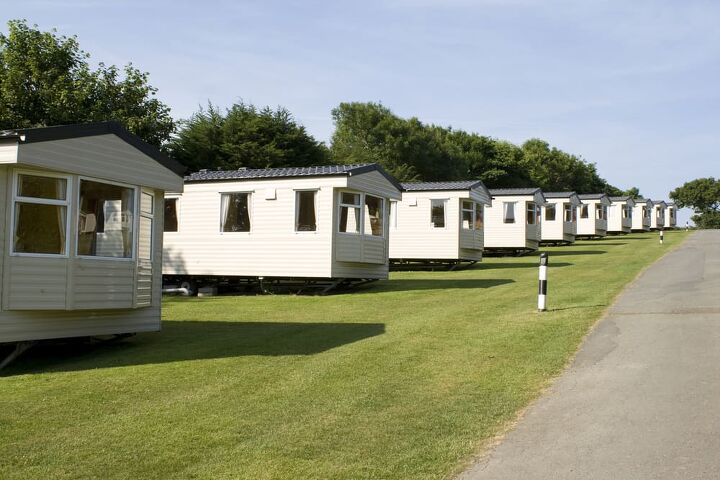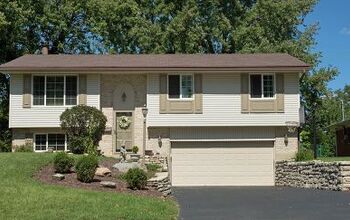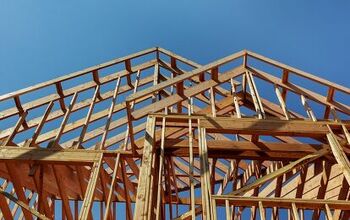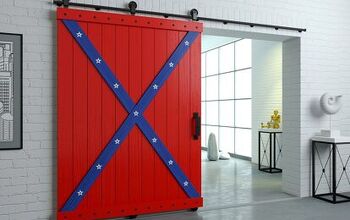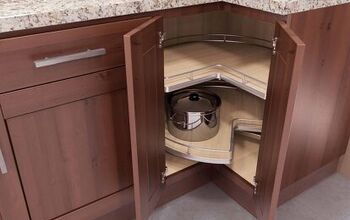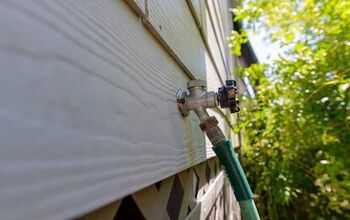How Bad Is It To Not Have Insulation Under A Mobile Home?

If you live in a mobile home and have no insulation, you’re essentially living in a box with air conditioning on the inside and windows on the outside. Your mobile home looks like any other structure from the outside, but because they’re made of metal or fiberglass, there is no protection between your home and its surroundings.
That means your HVAC system pumps heat into a space that has no insulation to keep the heat in. The same goes for your windows. When the sun is shining or the wind is blowing, you may bypass the heating and cooling systems.
Without insulation under a mobile home, the heat and cold will be a huge drain on your monthly budget. Your electric bill will be much worse than if you had insulation in your mobile home. While many think of mobile homes as a temperate housing option, they can get very hot in the summer.
While browsing this guide, you may be wondering: How Much Does It Cost To Put Tie-Downs On A Mobile Home?
Do You Need Insulation Installers?
Get free, zero-commitment quotes from pro contractors near you.

Why Is It Important to Insulate Underneath a Mobile Home?
There are several reasons why you should think about adding insulation underneath your mobile home. Let’s take a look at all of them.
1. Reduced Energy Bills
One of the reasons why you should consider insulating underneath your mobile home is to reduce your energy bills. When you install insulation, it’s going to keep the furnace or air conditioning from working as hard, which saves money. In fact, the EPA estimates that the average homeowner can save up to 15% on energy costs by using insulation.
2. Less Heat Loss
Along with costs, you also won’t have to worry about heat escaping through your floor. Insulating underneath a mobile home is a great way to ensure that you won’t have to deal with harsh winters.
3. Even More Protection
Certain types of insulation can actually provide structural support and protection to your mobile home. Closed-cell spray foam will help block air more efficiently, making your entire home more sturdy in windy seasons. It also is more durable, on average lasting 3-4 times longer than fiberglass insulation.
4. Proper Sound & Air Control
Insulating your mobile home has another great benefit in protecting against sound pollution. Materials with NRC ratings (Noise-Reduction Coefficient) of 0.75 or higher are highly effective at dampening sound. Fiberglass insulation is a great option, as it has an NRC of 0.9 to 0.95
This will be of great benefit to both you and your neighbors. Loud sounds from the outside won’t be as effective to you, and your noises won’t bother your neighbors either.
5. Stopping Pests In Their Tracks
Perhaps one of the best-added benefits of insulating underneath your mobile home is extra protection against pests. Closed-cell spray foam can create a physical barrier that stops small pests like bugs and vermin from being able to enter your home through the floor. This will give you peace of mind, and save you time in the long run from not having to deal with pest control.
6. Added Property Value
Insulation adds value as well. If you’re not familiar with mobile homes, you may wonder why your home isn’t worth what you paid for it. The truth is that many buyers don’t realize that they should put in insulation if they want to get the most out of their investment.
7. Proper Mobile Home Insulation
Insulating a mobile home is not a very difficult task. You can do it yourself or hire someone to do it for you. The cost will depend on the size of your home and how many walls and ceilings you have. You may need to hire professionals such as insulation contractors or energy consultants for this process.
Mobile home insulation is usually done in two layers. The exterior layer of insulation is meant to keep the air inside your home and stop it from escaping. The interior layer helps to keep the air from getting out.
To ensure that a mobile home is properly insulated, it is recommended that all possible walls, ceilings, and floors are included in the insulation process. Insulating underneath a mobile home is particularly important, because it often has the most surface area for air to escape.
What Type of Insulation Should I Use Under My Mobile Home?
The first step in insulating underneath your mobile home will be deciding on which type of material you’ll use. The most popular types of insulation for mobile homes include:
Blanket or Roll Insulation
Blanket or roll insulation is very popular because it’s affordable and easy to install or remove. It often comes in fiberglass, wool, or plastic, and it is available at most hardware stores.
This type of insulation is also very energy-efficient and does a great job at keeping energy costs low. There are some hazards, such as fiberglass insulation that can contain irritants like boron and silica, but as long as you follow the manufacturer’s safety instructions, there should be no issues with the installation.
Foam Boards
Foam boards are similar to blanket or roll insulation, and in some cases are much cheaper. The biggest difference is that it does require a bit more effort to set them up, as they are far less flexible than blanket insulation.
One of the most common materials found in foam board insulation is cellulose, which is made from recycled newsprint. Because of how it’s made, cellulose is often incredibly cheap and can be used for almost any part of your home. Additionally, it has been proven to be very effective against damp, cool, and warm areas alike.
Blow-in Insulation
Blow-in, or ‘loose insulation’ is another fairly common method, but it does require some expertise to do. Often it involves cutting a hole in a wall or floorboard and using a special type of compressor to blow the insulation into the hole. The main insulations used for blow-in include materials above like fiberglass and cellulose, as well as rock wool.
Rock wool, also referred to as ‘mineral wool’, is usually created by using iron ore in a blast furnace. This makes it very fire-resistant, but also more expensive compared to other insulation materials.
Things You’ll Need to Insulate Under Your Mobile Home
Before you can begin your project, there are a few additional tools that you should have nearby. You may need the following:
Caulking
An important part of any insulation project is caulking. Not only does it help to seal any gaps and cracks, but it also helps to keep the insulation in its place while also preventing drafts. This means that your insulation will be more likely to work as it’s supposed to and you won’t have problems with cold air escaping through holes in walls and ceilings.
Drywall Anchor Points
Drywall is usually a very strong material that can hold up quite well against heavy loads, but you don’t want it to have any weak points that could cause it to buckle or break under the added pressure. When you’re using insulation, it’s likely that the added weight will cause your drywall to bulge and bow.
To prevent this from occurring, you’ll need to secure some drywall anchor points into your walls. These are specifically designed to be used in conjunction with insulation and will help the drywall keep its shape.
Removal of Old Flooring Or Carpet
Lastly, you’ll want to make sure that you’ve properly removed all old flooring or carpet that could be inhibiting you from properly installing your new insulation. If you are unable to get underneath your mobile home to do the installation, you may need to consult with a contractor to help remove any barriers in your way.
Do You Need Insulation Installers?
Get free, zero-commitment quotes from pro contractors near you.

Related Questions
Why Do Mobile Homes Have Vents on the Floors?
Mobile homes are designed to be built on a trailer. This means that the roof is formed in sections and then connected with insulation. With mobile homes, it’s important to remember you don’t have complete protection against drafts or cold air. Such vents allow cold air or drafts to escape from the trailer and prevent them from entering through the walls.
Should You Insulate Mobile Home Skirting?
When you insulate your mobile home, it’s important to also remember to insulate the skirting as well. The insulation will help to prevent drafts from escaping through any cracks or openings in the skirting and it will also help to keep cold air from coming into your home.

We are a team of passionate homeowners, home improvement pros, and DIY enthusiasts who enjoy sharing home improvement, housekeeping, decorating, and more with other homeowners! Whether you're looking for a step-by-step guide on fixing an appliance or the cost of installing a fence, we've here to help.
More by Upgraded Home Team



